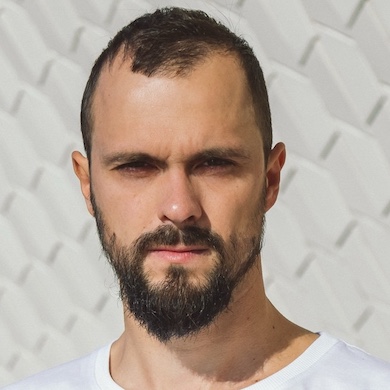What Is the UK Global Talent Visa?
The UK Global Talent Visa in digital technology allows professionals in tech to live and work in the UK without the need for sponsorship. It's designed for those who are either already industry leaders (Exceptional Talent) or are on track to becoming one (Exceptional Promise).
How it works on a high level? The visa process consists of two stages. First, you need to get an endorsement (i.e., the approval of your level of talent) from a designated endorsement body – for the digital technology industry, this is Tech Nation. The second stage is to apply for the visa itself based on the endorsement. At this stage, the Home Office verifies your profile for general reasons to deny (such as violation of immigration law, etc.) and issues you the Global Talent visa. In case you are already in the UK on one of the visas that allow switching to Global Talent (such as Skilled Worker), stage 2 is switching to GTV.
At CSMPLT, we've guided numerous engineers, product managers, founders, marketing and sales professionals, analysts, VC investors and other business and tech leaders from the digital technology sector through the successful endorsement process.
This guide distills what we’ve learned on practice: what matters, what gets overlooked, and what turns a strong profile into a successful Global Talent application. If you're trying to understand whether you qualify and how to structure your case, this is your go-to resource.
Who Is This Visa For?
You're in the right place if you are:
A technical specialist: software engineer, data scientist, AI/ML expert, DevOps lead, cybersecurity professional, designer, engineering leader, or technical architect
A product and growth professional: product manager, product owner, head of product, marketing professional, sales leader, business analyst, growth manager, or user researcher
A business leader: senior executive leading one of the functions in a product-led digital tech company
An entrepreneur, startup founder, or investor: with impact in product-led digital technology companies

A critical requirement is having experience in product-led digital technology companies – businesses that generate their primary revenue from proprietary digital products, services, platforms, or hardware they've created. This excludes traditional consultancies, outsourcing firms, and service-delivery focused companies that don't develop their own digital products.
Tick the boxes that reflect your current career, not future plans.
Eligibility Self-Check: Are You Likely to Qualify for a Global Talent Visa?
Mandatory (to qualify you must have both):
Work in product-led digital technology
Optional (choose any 2 of the 4 below):
Contributed to the field beyond main job
Made significant on-job impact
Academic or research results
If you tick both mandatory boxes and at least two optional ones, you may qualify depending on the quality and depth of your achievements and meeting other requirements.
Exceptional Talent vs. Exceptional Promise: What's the Difference?
The key difference is: Exceptional Talent is for those already recognised as leaders with a strong track record, whereas Exceptional Promise is for emerging leaders who can show clear potential rather than established acclaim.
Exceptional Talent
Strong public profile and recognition as an industry leader
Proven track record of significant achievements
Eligible for ILR (permanent residency) after 3 years
Exceptional Promise
Early in your digital technology career (generally less than 5 years)
Growing public profile and recognition as an emerging leader
Fewer or smaller-scale achievements to date
Eligible for ILR after 5 years

While Tech Nation may reclassify your application, it’s best to apply strategically for a specific category and clearly explain why you are aiming for it.
Stage 1: Endorsement
The Global Talent visa process begins with Stage 1: an endorsement application submitted to Tech Nation, the official body that assesses digital technology applications. At this stage, your talent, achievements, and recognition are evaluated, making it the most critical, make-or-break part of the entire process.
What You’ll Need to Submit
The endorsement application package consists of four components:
A personal statement (up to 1000 words)
A CV focused on your contributions in tech
Three letters of recommendation from senior professionals in your field
Ten evidence files proving your impact, leadership, and industry recognition, 3 pages each
To qualify, you must meet:

Most applications are rejected for one reason – insufficient evidence. A core part of our work is helping clients identify materials that can serve as solid evidence, analyse and select the strongest examples, structure the supporting documents, and craft a compelling narrative that connects every aspect of the application into a clear, coherent story that meets the requirements.
In the sections below, we’ll break down each criterion – what it means in practice and how to demonstrate you meet it.
Mandatory Criterion: Recognition
“You must show that you’ve been recognised as a leader – or emerging leader – in digital technology within the last five years.”
The main idea of this criterion is to show that well-known, independent experts or organisations – like industry groups, leading media, or other respected peers – recognise you as someone at the forefront of your field.

Myth to Bust: You don’t need to work for a famous tech company to qualify. What really counts is you – your impact, public profile, and contributions – not your employer’s brand.
What Strong Evidence Looks Like
Speaking at major events – you present at leading tech conferences or respected specialist gatherings in your field.
Featured in top publications – your work is covered or published in leading industry magazines, trade journals, or major media.
Serving as an expert voice – you contribute as a panelist, keynote speaker, or recognised subject-matter expert.
Judging or evaluating others’ work – you assess projects, sit on competition juries, or join evaluation committees.
Driving measurable growth – you are recognised for leading the growth of a company, organisation, or product.
Leading beyond your job – you gain recognition for initiatives that advance the tech sector outside your day-to-day role.
Earning standout compensation – you receive a high salary or significant remuneration (paired with other achievements).

Note: High compensation can support your case, but on its own it isn’t enough to prove this criterion.
What doesn’t work well here?

What doesn’t count as valid evidence of external recognition:
- Internal awards or praise (e.g. “Employee of the Month”)
- Generic or vague testimonials from colleagues or clients
- Self-published content (blogs, newsletters) with little or no demonstrated reach, engagement, or third-party validation
- High salary or compensation alone, without accompanying external recognition
- Passive participation (e.g. simply attending events or conferences, not speaking or being invited)
- Company-sponsored or internal programmes
- Metrics or growth claims without clear attribution to you
Tech Nation looks for visible, external, independently verifiable validation of your influence and leadership. If nobody outside your organisation knows or acknowledges what you’ve done, it’s unlikely to carry weight.
Optional Criteria (Choose Two out of Four)
1. Innovation
“You have a proven track record of innovation in the digital technology sector as a founder or senior executive of a product-led digital technology company or an employee working in a new digital field or concept"
The main idea of this criterion is to show that you have created a new product, concept, process, or approach that gained real traction and delivered measurable results.
What Strong Evidence Looks Like
Creating a genuinely new product or concept – you founded, led, or shaped a product-led digital technology company or breakthrough idea that is clearly novel.
Proving real market traction – you show hard evidence of product development and adoption, such as revenue, paying customers, or strong user growth.
Submitting formal company accounts – you provide audited (or director-signed) financial statements for at least 12 months with profit & loss and balance sheet, showing income beyond your salary. Accounts alone are not enough – they must support other evidence of innovation.
Showing domestic and international sales data – you present customer numbers by country with a breakdown of sales channels (online, retail, distributors) and when those sales occurred.
Innovation as an employee – if you work in a new digital field or concept, you supply a granted patent in your name or other clear, externally validated proof of breakthrough work.

Depending on your role (Business or Technical) and route (Talent or Promise), innovation can be more conceptual (new processes or approaches) or more tangible (such as developing a patented software system).
If you are the founder of a product-led digital technology company with proven traction and clear innovative aspects, this criterion may be a strong fit.
What doesn’t work well here?

Concepts without traction or innovation not directly attributable to you are a common reason for failing this criterion.
Examples of weak evidence include:
- Pitch decks or mockups with no real-world usage,
- Launched projects with no clear market adoption
- Features that simply copy existing products
- Work on an innovative product without evidence of your individual contribution.
Innovation must be built, launched, and gain traction – and there must be a direct, well-documented link to you.
2. Off-the-Job Contribution
“You have been recognised for work outside of your immediate occupation that contributes to the advancement of the field.”
This is where you show that you go beyond your day-to-day job by helping to advance the tech sector – for example through open-source contributions, sharing knowledge, mentoring, or organising and leading industry-advancing events, programs, or initiatives.
What Strong Evidence Looks Like
Meaningful open-source work – consistent, long-term contributions to well-known projects, demonstrated through an active GitHub profile or similar, showing measurable impact and community recognition.
Thought-leadership content – widely read op-eds, major news articles, or other published pieces that influence thinking or policy in digital technology.
High-impact conference speaking – invited main-stage talks at leading tech events with at least 100 attendees, backed by video, event programmes, or organiser letters confirming why you were asked to speak.
Recognised mentorship – ongoing, structured mentoring of startups or individuals through reputable, selective programmes (such as top accelerators or established non-profits), with independent letters confirming your senior role and impact.
Organising or leading industry initiatives – founding or running tech meetups, policy groups, societies, or educational programmes that clearly advance the sector, with evidence of reach and outcomes.

Tech Nation looks for sustained, visible impact beyond your job – not one-off talks or mentoring sessions arranged through popular online mentoring platforms. Consistency, independent validation, and a clear public footprint matter far more than quantity. Just as important is showing how each activity helps advance the tech sector, not simply that it took place.
What doesn’t work well here?

Weak examples include:
- Mentoring or volunteering that isn’t well documented or verifiable
- Contributions that are part of your job (for example internal training or company initiatives)
- Guest posts on company blogs without your name or individual attribution
- Simply attending meetups or joining Slack/Discord groups without active leadership or impact
- One-off or short-lived contributions with no clear audience, measurable outcomes, or lasting influence
- Activities that are not directly related to the digital technology sector
- Efforts that don’t demonstrably advance the field
Tech Nation expects field-advancing, externally visible contributions that clearly benefit the wider digital technology sector.
3. Significant On-the-Job Contributions (Impact)
“You have made a significant technical, commercial or entrepreneurial contributions to the field as a founder, senior executive, board member or employee of a product-led digital technology company"
This criterion is about proving that you have made a measurable, high-impact contribution to a product-led digital technology company – whether through technical work like building core products or through business leadership like driving strategy, growth, or major releases – with clear evidence of your personal role and results, not just your company’s success.
What Strong Evidence Looks Like
Founding or scaling a product-led company – you established or significantly grew a digital technology company and can show clear evidence of commercial success and your leadership in that growth.
Leading key product development – you played a central role in creating or improving high-impact digital products or services, evidenced by product designs, architecture diagrams, or code samples showing your individual contribution.
Driving company strategy – you influenced investment decisions, defined product strategy, or delivered major product launches or releases that materially advanced the company.
Developing and leading growth initiatives – you drove commercial success by building and delivering sales pipelines, generating growth and leads, and creating or implementing key processes.

Tech Nation cares less about job titles and more about tangible, personal impact. To meet this criterion you must clearly show how your own work – not just your team’s or company’s success – directly drove significant technical or commercial results.
What doesn’t work well here?

- Listing job duties without measurable results – giving a job description or responsibilities instead of concrete outcomes and metrics.
- Blurring your role with the team’s work – failing to separate and evidence your personal contribution.
- Making vague claims without proof – e.g. “helped improve UX” without before/after data, KPIs, or user impact.
- Using evidence from non–product-led companies – such as agencies or outsourcing firms.
- Providing evidence without context – not explaining the scale, complexity, or significance of the project so the assessment panel understands why it matters.
- Recycling evidence from the Innovation criterion – repeating the same example for both criteria.
- Highlighting routine tasks – describing normal duties (e.g. team management, maintenance coding) without exceptional or field-shaping results.
You need to demonstrate personal, industry-level impact – clear evidence that your own work has driven significant results that matter even beyond your company.
4. Academic Contributions (Related to Digital Technology)
“You have demonstrated exceptional ability in the field by making academic contributions through research"
The idea of this criterion is to show exceptional academic contributions in digital technology, evidenced by peer-reviewed research, leading publications, major grants or awards, and endorsement from recognised experts.
What Strong Evidence Looks Like
Peer-reviewed publications – at least one significant paper in a top-tier, peer-reviewed journal that is directly relevant to digital technology (undergraduate or MSc theses do not qualify).
Presentations at recognised conferences – talk at peer-reviewed, field-leading conferences with proof such as the programme, video, or similar.
Competitive research grants or awards – evidence of winning merit-based, peer-reviewed research grants or distinguished awards
Prestigious academic honours – merit-based awards of high standing (e.g. equivalent to the UK Royal Society) with documentation of the selection criteria.
Independent expert endorsements – strong letters from research supervisors or leading academics confirming the world-class standard and impact of your work, provided alongside the required recommendation letters.

Tech Nation values peer-validated, high-impact research over academic titles or routine teaching. What matters is original work in digital technology that stands up to rigorous peer review and earns recognition from respected scholars or top-tier institutions.
What doesn’t work well here?

- Relying on student work – using undergraduate or MSc theses or coursework, which do not qualify.
- Providing only reference letters – letters without peer-reviewed publications, grants, or awards are not enough.
- Citing unreviewed or low-impact publications – such as blog posts, self-published papers, or unranked conference proceedings.
- Presenting non-digital-technology research – evidence must be directly relevant to digital technology.
- Listing teaching or supervision duties – routine academic roles without significant research outputs do not demonstrate exceptional contribution.
- Submitting purely financial awards – scholarships, bursaries, or grants given solely for funding purposes are insufficient.
- Offering outdated or one-off work – evidence must show a consistent, recognised research track record, not a single, old publication.
In short, to meet this criterion you must present current, peer-reviewed, and field-relevant research of clear impact – not student projects, routine teaching, or unverified publications.
Letters of Recommendation: How to Get Them Right
The idea of this requirement is to show independent, authoritative recognition of your talent. You must provide three strong letters from well-established experts in the digital technology field who know your work in depth and can attest to your exceptional achievements and your planned contribution to the UK tech sector.
Each Recommender Must:
Be an established expert in digital technology with strong credentials and reputation.
Have direct knowledge of your work for at least 12 months.
Be independent of your immediate reporting line – ideally not a direct manager or supervisor.
Every Letter Should:
Be written specifically for your Global Talent application, not reused from another purpose.
Explain how the author knows you and provide context for your professional relationship.
Highlight different examples of your achievements, skills, and contributions – each letter shuold bring something unique.
Demonstrate why you are an exceptional talent or promise in digital technology.
Describe your expected contribution to the UK tech sector and outline your future plans.
Meet formal standards: typed, dated, up to three pages, signed, and include the author’s contact details, organisation logo, and registered address (if applicable).

Letters carry weight only when they add specific, measurable proof of your excellence, not generic praise. Choose respected industry figures who can give detailed, verifiable examples of your impact and avoid letters that overlap too much
What doesn’t work well here?

- Vague or generic praise – letters that lack specific, verifiable examples of your impact and measurable outcomes.
- Wrong referees – authors who are not established digital technology experts, lack strong credentials, or cannot prove a 12-month relationship with your work.
- Letters used as sole evidence – relying only on letters without supporting documents such as product metrics, code, or press coverage.
- Not tailored to Global Talent – letters written for another purpose or missing key elements like your UK plans and contribution to the UK tech sector.
- Template-like or duplicate content – near-identical wording across letters or content borrowed from other applicants, which Tech Nation may treat as fraudulent.
- Missing formal requirements – letters not typed, dated, signed, or lacking the author’s credentials and contact details.
Choose respected, independent tech leaders and brief them to provide unique, detailed, and fully compliant letters that clearly prove your exceptional talent and planned UK impact.
Stage 2: Visa Application Process
Once you receive your Tech Nation endorsement (Stage 1), you must submit a formal visa application to the UK Home Office. This is commonly referred to as Stage 2. You have 90 days from the date of your endorsement decision to complete this application.
Important Details for Stage 2
Choose the visa length up front – you select a validity period from 1 to 5 years at the start of the application.
ILR eligibility: 3 years for the Talent route and 5 years for the Promise route.
Minimum stay requirements for ILR and citizenship – To qualify for ILR, you must not be absent from the UK for more than 180 days in any 12-month period. For UK citizenship, the rule is stricter: no more than an average of 90 days of absence per year.
Switching from another UK visa – if you are moving from certain visas (for example, Skilled Worker), time already spent in the UK may count toward ILR. You can adjust your chosen length accordingly.
Healthcare surcharge – you must pay the NHS immigration health surcharge of £1,035 per year upfront for the entire visa duration. So your choice of visa duration will impact this cost. Once you gain ILR, this fee is no longer required.
Extensions possible – you can extend the visa in blocks of 1–5 years. Each extension requires proving your Exceptional Talent status again and paying the application fee of £716.
Adding dependants – you can include dependants (partner and children) at this stage or they can apply later.
Required Documents
Your Tech Nation endorsement
A valid passport
Tuberculosis test (if required for your country)
Visa application fee (£205)
Healthcare surcharge payment (£1,035 per year of visa length)
Processing Time
3 weeks if applying outside the UK
8 weeks if applying from within the UK
You can speed up processing by paying £500 for priority (about 5 working days) or £1,000 for super priority (next working day).
Fees and Costs
Visa application fee (£205)
Healthcare surcharge: £1,035 per year
Dependant visa application fee (if applicable): £766
Healthcare surcharge for dependants (if applicable): £1,035 per adult per year or £776 per child under 18 per year.

Be mindful of the 90-day deadline to submit your Stage 2 application after your endorsement is approved.
Dependent Visa
Your partner and children can join you in the UK as your dependants if they meet the eligibility requirements.
Dependants of a Global Talent visa holder have broad rights in the UK. A dependant partner can work full time in almost any job or be self-employed, and both partners and children can study without restriction. Children are entitled to attend UK schools, and all dependants can access NHS healthcare, covered by the required healthcare surcharge.
Whom Can You Add as Your Dependant
Husband, wife, civil partner or unmarried partner
Child under 18 - including if they were born in the UK during your stay
Child over 18 if they currently have permission to be in the UK as your dependant
Summary
Building a strong application is about clear, strategic evidence and avoiding common pitfalls:
Choosing the wrong path (Talent vs. Promise) without strategic thinking
Submitting template-style letters that say little and prove nothing
Overloading the evidence section with quantity over quality
Failing to explain context – assuming the reviewer somehow “gets it”
Not understanding the endorsement criteria in depth before applying
Checklist of Key Steps
Understand if you're eligible
Decide whether you’re Talent or Promise
Map your achievements to the criteria
Collect 10 strong pieces of evidence
Choose and secure 3 credible recommenders
Write a cohesive personal statement
Finalize CV and documents
Prepare and apply for Stage 2
Why Work With CSMPLT
The Global Talent visa isn't a form to fill out – it's a strategic campaign
Most applicants treat this like paperwork. We treat it like what it actually is: a high-stakes presentation where you get a chance to convince expert evaluators that you're one of the top talents in the digital technology industry. We engineer winning cases from the ground up.
How CSMPLT Can Help:
Gap Analysis & Evidence Sourcing – We analyze your materials, identify what's missing, and actively research third-party evidence from public sources to corroborate your achievements and meet specific criteria.
Professional Documentation – We structure, label, and format all exhibits with explanatory captions, build comprehensive evidence indexes with cross-references, and arrange certified translations when required.
Continuous Case Refinement – We track remaining gaps, request additional materials as needed, and adjust strategy as new information arrives to strengthen your position.
Independent Quality Control – Beyond your dedicated case team, at least two senior professionals independently review your entire case to catch inconsistencies, errors, or missed opportunities.
Proactive Weakness Management – We anticipate potential questions or objections evaluators might raise and address them directly in your application before submission.
Full-Service Case Management – We handle every administrative detail from document preparation to translation coordination, so you focus on your work while we manage the complex logistics.
The CSMPLT Difference:
Strategic Positioning – We map your unique achievements against evaluation criteria to find your strongest competitive angle and craft your narrative around it
Narrative Mastery – we craft a compelling arc that connects your past achievements to future potential
Evidence Curation – we build as strong a case as it can be using data, metrics, and third-party validation
We Drive the Process – from strategic brainstorming sessions and stakeholder coordination to deadline management and final approvals. You focus on your work while we ensure nothing falls through the cracks.
Risk Mitigation – we stress-test your application against common failure points

Can you do it yourself? Of course! Should you? That's another question entirely.
Over the years, we've handled this process multiple times and have gathered proven best practices and refined approaches. We've witnessed numerous successful cases, rejections, and rejections that were ultimately turned into successes through strategic appeals or subsequent applications.
We bring deep expertise, specialized know-how, and established best practices that help avoid common pitfalls while maximizing your chances of building the strongest possible case.
We invest 200-400 person-hours from multiple team members on each project – time that we save you from spending on learning the intricacies of this complex process and going through this hardly pleasant journey alone.
This is a painful process. While we cannot alleviate the related pain completely (e.g., you probably won't allow us to search your computer archive for that document you remembered you have), we do everything humanly possible and are ready to take on all related assignments to make it easier for you (e.g., researching, analyzing, and compiling evidence from publicly available materials). Simply put: if any aspect of this process can be delegated, delegate it to us. We'll handle everything we possibly can so you can focus on what only you can do.
Finally, this is our job – we work full-time on your case while you work full-time on your job. The result: higher quality outcomes, delivered much faster.
Frequently Asked Questions:
I’m not working at a well-known company. Does that hurt my chances?

The impact you deliver usually outweighs brand names. If you’ve launched something, grown users, or contributed meaningfully in a product-led tech environment, you can qualify. A lot of successful applicants work at startups.
Can I use the same piece of evidence for two different criteria?

No. Each piece of evidence can only be used once. If something fits more than one criterion, choose where it adds the most value – then support the other criterion with different documents. You need 10 unique pieces across the full application.
What if I don’t have press coverage or awards?

It’s not a dealbreaker, but you’ll need to find other strong forms of external recognition to satisfy the Mandatory Criterion. Press, awards, and speaking engagements are the most straightforward way to prove that your impact has been noticed outside your immediate workplace. Without them, assessors may question whether you're truly seen as a leader or emerging leader in your field.
If you don’t have media coverage, conference speeches or awards yet, we offer a dedicated PR Boost package that helps you:
- Get featured in credible industry publications
- Land podcast interviews, founder Q&As, or expert commentary slots
- Apply for relevant awards, judging panels, or speaker opportunities
- Build a discoverable public profile with high-signal credibility
- Package it all into visa-friendly evidence with clear framing and documentation
We only work with real stories and focus on your genuine achievements and help amplify them in a way that’s both strategic and ethical.
Additional features and awards can be a game-changer if it’s relevant and well-positioned. That’s why many of our clients choose to invest in PR support before applying – it pays off across the whole application.
Do my letters of recommendation need to be from UK-based people?

No, your referees can be from anywhere in the world. What matters is that they’re senior professionals in digital tech, have known you and your work for at least 12 months, and can speak credibly about your impact.
Do I need an English language test result?

No. The Global Talent visa does not require an English language test.
Do I need a minimum salary or income threshold?

No. There are no salary or income requirements for the Global Talent visa.
Do I need a job offer from a UK company?

No. The Global Talent visa does not require a job offer or sponsorship from a UK employer. You can work for any employer, be self-employed, or start your own business.
Can I bring my family with me? Will my partner have the right to work?

Yes. Your eligible partner and children can apply as dependants, and a dependant visa grants the right to work in the UK.
What documents are needed besides the endorsement?

For Stage 2 (visa application), you’ll need your passport, and applicants from certain countries must also provide tuberculosis test results. If you apply from a country that is not your country of citizenship, you must also include documents proving your valid residency status.
How much do the government fees cost?

Global Talent Visa related government fees:
- Endorsement fee (Stage 1): £561
- Visa application fee (Stage 2): £205
- Healthcare surcharge: £1,035 per year, paid in advance for the full duration of the visa
- Dependant visa fee: £766
- Dependant healthcare surcharge: £1,035 per adult per year or £776 per child under 18, paid in advance for the full duration of the visa
Will I get a refund if my endorsement is rejected?

No. The endorsement fee (£561) is non-refundable as it covers the cost of processing and evaluating your application. If you're not endorsed, you can request a review at no additional cost. If the review is unsuccessful, you don't proceed to Stage 2, so you won't pay the visa application fees.
How many times can I apply for the Global Talent visa?

You can apply for endorsement as many times as you wish. There is no limit on the number of attempts, and you don't have to wait any specific period between applications.
What if my application is rejected?

You have two options:
- Request a review: If you believe the endorsing body made an error in assessing your application, you can request a review at no additional cost. You cannot submit new evidence – only explain why you believe the decision was incorrect.
- Reapply: You can rework your case and submit a new application. This requires paying a new endorsement fee, but there's no waiting period or limit on attempts.
How long does the decision process take?

- Stage 1 (Endorsement): Up to 8 weeks. Average decision time is 3-4 weeks.
- Stage 2 (Visa application): 3-8 weeks.
Plan for approximately 3-4 months total from initial submission to visa approval.
What are the main reasons applications get rejected?

The most common reasons include:
- Insufficient evidence of impact and recognition
- Evidence that doesn't clearly demonstrate how you meet specific criteria
- Poor quality or unclear reference letters
- Lack of third-party validation of achievements
- Weak narrative that fails to connect achievements to the required criteria
- Missing key evidence or failing to address all mandatory criteria
Do I need professional help, or can I do this myself?

The process is open to anyone. But consider this:
The Reality of DIY Applications
Some of our brightest clients initially applied themselves and were rejected, despite having strong, qualified profiles. The issue wasn't their credentials – it was how they presented the evidence. The requirements are strict and highly specific, and missteps can result in rejection.
If you're prepared to spend months learning the nuances and working on your materials, you can certainly do this yourself. How much that would cost you?
What We Bring
We've worked on numerous cases and have developed proven best practices through years of experience. We've seen what works, what fails, and how to turn rejections into approvals through strategic resubmissions or appeals.
We invest 200-400 person-hours per case across multiple team members –time you save by not having to master this complex process yourself.
How We Help
While you'll still need to provide personal information and materials, we handle everything that can be delegated:
- Researching and compiling evidence from public sources
- Structuring and formatting all documents professionally
- Coordinating with your references
- Managing timelines and quality control
- Anticipating and addressing potential weaknesses
Bottom Line
This is our full-time job. We work full-time on your case while you work full-time on yours. The result: a stronger application, delivered faster, with significantly higher chances of approval.
.svg)















